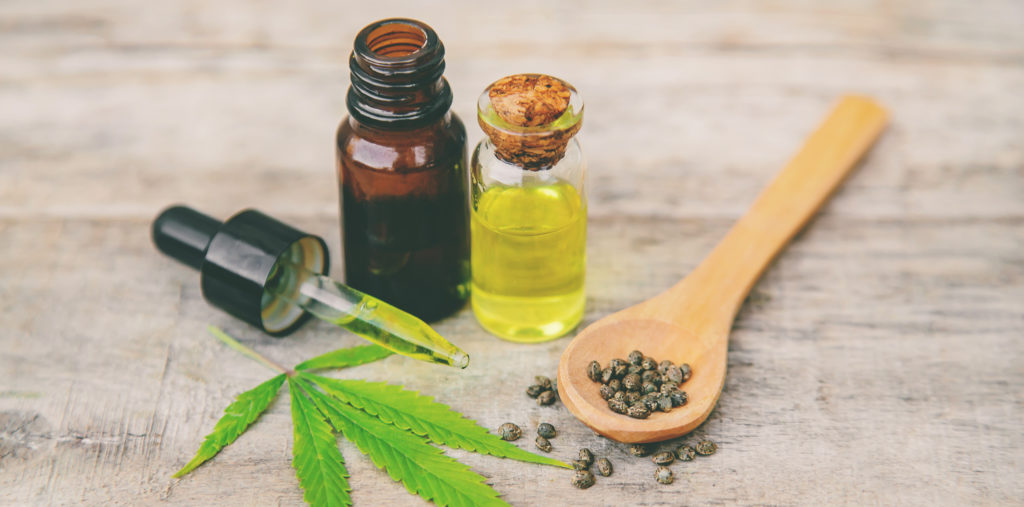
The World Health Organization regards migraines as one of the ten most disabling health conditions on Earth. And yet, they affect over 1 billion people worldwide. Thirty-seven million women, men, and children suffer from migraines in the United States alone.
Furthermore, migraines are no run-of-the-mill headache. Their symptoms are highly disruptive to your daily routine, and they often won’t go away after taking regular OTC medications.
Many chronic migraine sufferers have turned to alternative medicine for a more effective solution to their pain. Some even microdose psilocybin daily to prevent getting a migraine in the first place. This phenomenon has become so prevalent that researchers have begun studying the efficacy of psilocybin for migraines.
So, where does cannabis come into play? Can THC and CBD provide headache relief?
Migraines v.s. Headaches
First, let’s set the record straight. Although migraines are a headache disorder, they differ from traditional headaches.
The symptoms of a typical headache include:
- Consistent head or face pain without throbbing, mild to moderate pain levels
- Bilateral pain (on both sides of your head)
- Symptoms worsen with physical activity (walking, going up stairs, etc…)
- Responds well to over-the-counter medications (ibuprofen, acetaminophen, etc…)
The symptoms of a migraine include:
- Moderate to severe pain that lasts one to three days
- Pounding, throbbing pain
- Nausea and vomiting
- Light, odor, and noise sensitivity
- Abdominal pain
There are also cluster headaches, which are the most severe type of migraine. Symptoms of a cluster headache include:
- Burning, stabbing pain in your eyes and forehead that lasts one to three days
- Other migraine symptoms (light sensitivity, nausea, vomiting, etc…)
Combining CBD and THC for Migraines
THC oil and migraines are not by any means a newfound therapy. According to a study in the USASP journal, humans have used cannabis to alleviate migraines and headaches for hundreds to thousands of years. Roughly 36 percent of medical cannabis patients report using cannabis to relieve migraines and headaches today.
Of those who use cannabis to treat their migraines, 40% reported a reduction from 10 migraines per month to just four. These reductions have also allowed patients to reduce their reliance on prescription migraine medications.
According to a review in the Cureus journal, there are several pathways in which cannabinoids could alleviate migraines.
See, typical migraine treatment involves the use of serotonin agonists, including triptan-based medications. These medications activate serotonin receptors as if they are serotonin.
Caffeine is also known to alleviate migraines because it’s a vasoconstrictor. This means caffeine narrows the blood vessels in your head and neck, restricting blood flow and relieving the throbbing pain of a migraine.
Phytocannabinoids and endocannabinoids modulate certain serotonin receptors (5-HT1A & 5-HT2A), similar to how a traditional prescription migraine medication would. The CB1 receptors of the endocannabinoid system are throughout your brain, as well. According to the review, these receptors exert their pain-blocking effects through their interactions with serotonin.
The anti-inflammatory properties of cannabinoids are also viable for alleviating the inflammatory pain associated with headaches and migraines.
Additionally, the review cites several studies that found cannabis significantly reduced migraine symptoms, improved participants’ sleep quality, and decreased the amount of prescription medications the participants had to take.
One of the cited surveys reported that cannabis reduced headaches by 47.3% among participants and reduced migraines by 49.6% among participants. Another survey cited by the review found cannabis was 86% effective at reducing migraine pain.
Not only does cannabis seem to alleviate migraine pain, but it also reduces the nausea and vomiting associated with them. Cannabis may even work as a preventative treatment for migraines, stopping them dead in their tracks before they can start their attack.
However, more long-term studies are needed to determine whether cannabis tolerance could counter its efficacy as a preventative migraine therapy.
Nevertheless, cannabis’ efficacy in reducing migraine pain and nausea is promising. It seems that THC oil and migraines may go hand in hand for overcoming the disruptions caused by this debilitating disorder.
Cannabis Terpenes and Migraines
In addition to cannabinoids, experts have turned their focus to terpenes to see how they may impact migraines.
Terpenes are aromatic compounds that are found all throughout nature. While they have been prominent in the aromatherapy industry for what seems like forever now, they’ve been gaining more attention lately due to their relationship with cannabis.
Each strain has a unique terpene profile that gives it a signature scent and flavor. But the power of terpenes goes beyond that. Terpenes are bioactive compounds that have therapeutic effects of their own.
Most notably, many believe the terpene profile of each strain gives it specific therapeutic properties. This theory is known as “The Entourage Effect,” and it would explain why not all cannabis strains feel the same.
In any case, one study looked at how pinene and linalool may affect neurological and psychiatric health conditions. The study found pinene’s anti-inflammatory and vasoconstrictive effects significantly reduced migraine pain.
Linalool has long since been hailed for its stress-relieving, anti-anxiety properties. While it’s found in cannabis, it’s also heavily sourced from lavender. The anxiolytic properties of linalool could help combat stress-induced headaches.
THC for Ocular Migraines
Ocular migraines differ from other types of migraine headaches. The chief symptom of ocular migraines is temporary vision loss that lasts anywhere from a few minutes to up to an hour.
Unfortunately, there aren’t any studies on cannabis for treating ocular migraines. While it’s hard to say whether cannabis may alleviate the vision disturbances caused by the condition, it could reduce the pain associated with it.
Cannabis and Cluster Headaches
As mentioned earlier, cluster headaches are the most severe type of migraine. To make matters worse, cluster headaches don’t always respond to traditional migraine medications. In fact, they’re so intense and stubborn that cluster headaches are sometimes referred to as “suicide headaches” in medical literature.
Cluster headaches are extremely rare in comparison to other types of headache disorders. Thus, the research on this condition as a whole is somewhat limited — especially in regards to cannabis.
The verdict on cannabis and cluster headaches is still up in the air. On one hand, cannabis appears to alleviate cluster headaches in about 25% of individuals. Yet, cluster headaches respond astoundingly well to hallucinogenic substances, likely due to their serotonergic and vasoconstrictive effects.
It may be possible that THC alone could be effective for alleviating cluster headaches, as it has vasoconstrictive properties. The vasodilatory effects of CBD could actually exacerbate cluster headache symptoms.
THC Edibles and Headaches
Before a migraine comes on full-throttle, you might experience an “aura.” Auras are the first warning sign of a migraine. Generally, neurologists advise you to take migraine medication as soon as the aura sets in. The faster you can treat a migraine, the more effective the medication will be.
The same rule could apply to edibles and headaches. Tinctures, capsules, gummies, and edibles can take 30 to 90 minutes to kick in. Thus, it’s better to take an edible as soon as you feel an aura. That way, you can alleviate the migraine before it sets in.
However, if you’re already mid-migraine, smoking, vaping, or dabbing cannabis is the fastest way to get symptom relief. The effects of cannabis happen instantly when you inhale it. But, when you take an edible, the cannabinoids have to make their way through your digestive tract before you start to feel anything.
Key Takeaways: Cannabis May Effectively Alleviate Migraine

Over one billion people worldwide suffer from debilitating migraines. While migraines are a type of headache disorder, they are far more intense and severe than your typical headache.
Several studies support the efficacy of treating migraines with cannabis. In fact, about 36% of medical cannabis patients use cannabis to treat migraines. It appears cannabinoids alleviate migraines through several different mechanisms, including serotonin modulation and vasoconstriction.
The anti-inflammatory, anti-nausea, and stress-reducing effects of cannabinoids and terpenes can also combat migraine symptoms and triggers.
However, further research is needed on the efficacy of cannabis for treating specific types of migraines, such as cluster headaches and ocular migraines. These two conditions differ from traditional migraines and may benefit from specific, isolated cannabis compounds instead of full-spectrum cannabis use.
References
- Cuttler, C., Spradlin, A., Cleveland, M. J., & Craft, R. M. (2020). Short- and Long-Term Effects of Cannabis on Headache and Migraine. The Journal of Pain, 21(5–6), 722–730. https://doi.org/10.1016/j.jpain.2019.11.001
- D’Souza, D. C. (2022). Psilocybin for the Treatment of Migraine Headache. ClinicalTrials.Gov. https://clinicaltrials.gov/ct2/show/NCT03341689
- Lochte, B. C., Beletsky, A., Samuel, N. K., & Grant, I. (2017). The Use of Cannabis for Headache Disorders. Cannabis and Cannabinoid Research, 2(1), 61–71. https://doi.org/10.1089/can.2016.0033
- Logan, A. (2020, September 21). The Facts About Migraine. American Migraine Foundation. https://americanmigrainefoundation.org/resource-library/migraine-facts/
- Poudel, S., Quinonez, J., Choudhari, J., Au, Z. T., Paesani, S., Thiess, A. K., Ruxmohan, S., Hosameddin, M., Ferrer, G. F., & Michel, J. (2021). Medical Cannabis, Headaches, and Migraines: A Review of the Current Literature. Cureus. https://doi.org/10.7759/cureus.17407
- Weston-Green, K., Clunas, H., & Jimenez Naranjo, C. (2021). A Review of the Potential Use of Pinene and Linalool as Terpene-Based Medicines for Brain Health: Discovering Novel Therapeutics in the Flavours and Fragrances of Cannabis. Frontiers in Psychiatry, 12. https://doi.org/10.3389/fpsyt.2021.583211